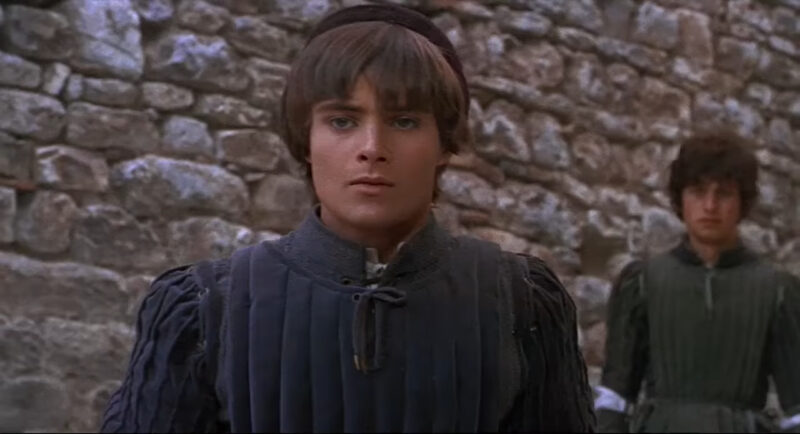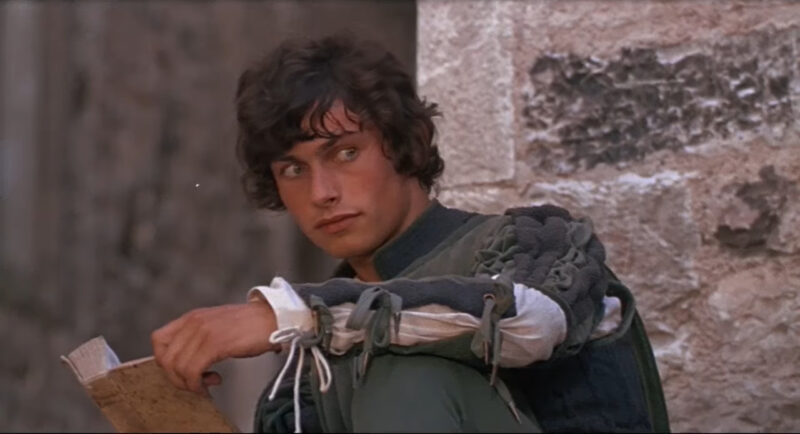Benvolio, a character in Shakespeare’s “Romeo and Juliet,” serves as a voice of reason and peace.
His role is crucial in attempting to mediate the feuding families and provide counsel to his friends, particularly Romeo.
Let us talk about this role in greater detail.
Benvolio as the Voice of Reason
Benvolio consistently acts as the voice of reason throughout “Romeo and Juliet.”
His first significant act is his attempt to break up the street fight between the servants of:
- Montague house
- Capulet house
As a peacemaker, he tries to diffuse the situation, appealing to their sense of calm and reason.
His intervention, although unsuccessful in preventing the fight from escalating, marks him as a character who values peace and order.
Benvolio’s rational nature is further highlighted in his interactions with Romeo. When Romeo is heartbroken over Rosaline, Benvolio advises him to move on and seek other beauties.
He suggests that Romeo attend the Capulet party, not to stir trouble, but to help Romeo realize that there are other women besides Rosaline.
This advice, though given with good intentions, sets the stage for Romeo’s fateful meeting with Juliet. Benvolio’s efforts to guide Romeo and keep the peace underline his role as the voice of reason in the chaotic world of Verona.
Peacemaker Role
Benvolio’s role as a peacemaker is evident in several instances throughout the play.
He consistently attempts to intervene in conflicts and prevent violence between the Montagues and Capulets.
His commitment to peace is seen when he urges Mercutio and Tybalt to avoid confrontations, trying to mitigate the animosity between the two houses.
During the initial street brawl, Benvolio tries to break up the fight, showing his dedication to maintaining peace. His efforts are further highlighted after the fatal duel between Mercutio and Tybalt.
Benvolio provides a clear and honest account of the events to the Prince, hoping to prevent further escalation of violence. His truthful recounting demonstrates his integrity and his desire to see justice served.
Benvolio’s peacekeeping attempts are ultimately unsuccessful in preventing the tragic outcome of the play.
However, his consistent attempts to mediate conflicts and his honest reporting of events underscore his role as a character committed to peace and truth.
Emotional Depth and Loyalty
Benvolio’s character is marked by his emotional depth and loyalty, particularly towards Romeo.
He shows genuine sympathy towards Romeo when he is despondent over Rosaline. Benvolio’s empathy is evident in his attempts to comfort and counsel Romeo, encouraging him to move on and find happiness elsewhere.
Benvolio’s honesty and integrity are key aspects of his character. He is known for his truthful recounting of events, even when it involves his friends’ faults.
This honesty is crucial in the turbulent environment of Verona, where misunderstandings and deceit often lead to violence.
His willingness to speak the truth, regardless of the consequences, underscores his integrity and commitment to justice.
Moreover, Benvolio’s loyalty is demonstrated when he agrees to spy for Romeo’s parents out of concern for Romeo’s well-being.
The emotional depth and unwavering loyalty make him a reliable and compassionate figure in the play, contrasting with the more volatile and impulsive characters around him.

Analysis of Benvolio’s Influence on the Plot
Benvolio plays a subtle yet significant role in influencing the plot of “Romeo and Juliet.”
His suggestion to crash the Capulet party, made with the intention of helping Romeo move on from Rosaline, inadvertently sets in motion the events that lead to Romeo and Juliet’s tragic romance.
Despite his consistent efforts to keep the peace, Benvolio’s attempts at preventing violence are ultimately unsuccessful.
The escalating feud between the Montagues and Capulets continues to spiral out of control, leading to the deaths of several characters:
- Mercutio
- Tybalt
- Paris
- Lady Montague
- Romeo
- Juliet
Benvolio’s inability to prevent these tragedies underscores the play’s themes of fate and the inevitable consequences of longstanding hatred.
Benvolio’s influence on the plot, though indirect, is pivotal. His actions and counsel impact the trajectory of the story, highlighting his importance as a character.
While his peacekeeping efforts may not prevent the ultimate tragedy, they demonstrate his unwavering commitment to reason and harmony.







